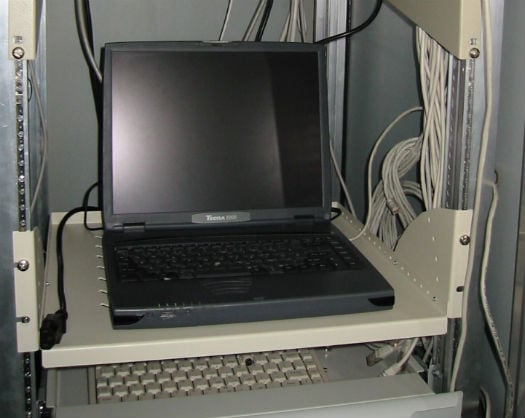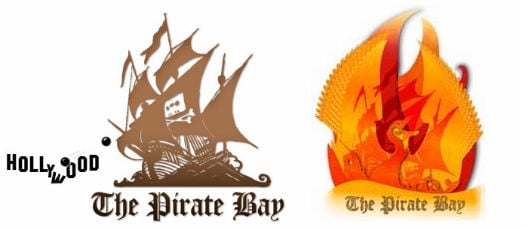...starring the ASCENSION plan and SPECIAL GUESTS...
...21:12:2012 - 8pm till the END of TIME - streaming LIVE via USTREAM - venue TBC...
...it's the NIGHT of 144000 stars...
...the LAST NIGHT of the BOMBS...
...be THERE or be NOWHERE...
...providing your daily prescription of a cry and two laughs...





Posted by Nuff Said
Any pot aficionado would tell you that the best pot is that which is grown locally. Of course, aside from the occasional covert operations, this can’t really apply everywhere. While some US states for instance have a more liberal policy on cannabis cultivation, if you live outside of these areas then you’re pretty much limited to taking whatever you can get so it’s literally a case of ‘pot luck’.
Here we give 5 pretty clear reasons why local growing should be the norm…
Whether you live in the US, The UK or Europe, you’ll have the same problems with the weed you’re getting hold of. In the US, it’s the Mexican imports while the UK and mainland Europe are regularly pulling in the North African imports. Whether, it’s weed or brick you’re getting, you should be asking the same question. What’s gone into this on its intercontinental journey? With this kind of mass smuggling and undoubtedly mass cultivating, you simply have no idea what processes are used to grow and maintain the weed.
It’s not like it’s a standards approved product so the fertilisers and stimulants could be making this natural herb as unnatural as Kristen Stewarts smile and that’s not even taking into account the other potential additions they make to boost their crop along the way.
With local cannabis growth, you can be a little more assured about the process. It’s effectively the same as a small local market. Less preservatives and more wholesome products all round.
If you want an apple, it always tastes best picked straight from the tree. The same rule applies to pretty much any produce including weed. Buying from a dealer just means that there is one more person in the process who is not strictly necessary, ramping up the cost and pushing you further from the source. Sure, I’m leaving out the fact that in most cases this is illegal, but the process is effectively the same.
If on the other hand you had access to a local grower you would be able to see how their crop is grown, getting a better eye for the quality and a better price. Plus being able to see the product from marijuana seeds to full blown plants will certainly make you happier to hand over your money.
One defining point on the step towards controlled legalisation of cannabis is undoubtedly going to be support for local farming. One of the main issues that is holding back the legalisation of the plant is the government’s inability to moderate it effectively. Already in certain US states, declared medicinal marijuana outlets and cultivators have proven how well monitored such a commodity can be.
Also, while government control will inevitably bring in greater taxation on the plant similarly to tobacco or alcohol, it will almost certainly bring the standard price down. An illegal import commands a high price tag due to the inherent risks involved. Think alcohol prices in prohibition America.
When states and countries are allowed to grow cannabis as part of a taxable business, whether for medicinal use, recreation or hemp for textiles, insulation …the list goes on, then the economic benefits will become apparent.
Just like Al Capone during prohibition, importing illegal produce is always to some degree funding organised crime. Every gram of cocaine is paid for in blood before money ever reaches the table and while less evident, cannabis is to a degree in the same boat. Border crossings between Mexico and America are often driven by drug trafficking and in many cases fund the Mexican and Colombian cartels. The same moral issues are apparent throughout Europe as people try to ignore the clearly dark underbelly of drug smuggling and farming.
Of course most of the violence and blood money in these cases is tied to the more dangerous narcotics. Consider the fact that Canadian grass comes in with relative ease compared to the combined narcotic and weed running of South America.
That said, the problem is still there in any case. With cannabis however, more can be done to curb this. Putting the power in the hands of respectable local businesses to grow and distribute weed effectively castrates the smugglers.
One of the key reasons right now for the semi-legal state of cannabis in America is due to its potential for medical applications. Used to treat AIDs related illnesses, symptoms of cancer and chronic pain, cannabis has already proven its effectiveness as a medicine.
Every now and then we’ll see further research but it is likely to always be limited and inhibited by governmental control. A broader range of local growers would allow greater resources for testing, wider ranges of treatment and potentially, a host of undiscovered health benefits which these medical seeds could contain.
So there you have it, 5 reasons why cannabis should be grown locally. Maybe in the near future we’ll see a bit more of this as the government’s wake up to the fact that cannabis was around long before they were and will be, long after they’ve blocked their last proposition.
Cannabliss is an advocate for the legalisation of cannabis seeds the world over.
---
Follow ISMOKE Magazine on Twitter @ISMOKEMAG
ISMOKE Magazine on Facebook
 |
| NORML image |
 This anonymity creates an incentive for people to be dishonest with what they sell. This could lead to rip offs, or downright contamination of the drug with unwanted harmful substances. This is why there was bathtub gin that would make you go blind if your drank it during alcohol prohibition. This is also the reason why some of the harder street drugs today are cut with toxic chemicals that increase the chance of overdose ten fold. The fact that the drugs need to be smuggled also creates the incentive to make drugs more potent, and thus in some circumstances more dangerous. The increased potency and decreased availability inevitably leads to a massive increase in cost. The increased cost is a whole other issue with its own unique side effects in regaurds to drug safety. When the price of the real drugs go up, people just start huffing paint thinner, smoking bath salts and cooking up crystal meth in their basements, which is then even many times more dangerous than the unbranded drugs on the black market.
This anonymity creates an incentive for people to be dishonest with what they sell. This could lead to rip offs, or downright contamination of the drug with unwanted harmful substances. This is why there was bathtub gin that would make you go blind if your drank it during alcohol prohibition. This is also the reason why some of the harder street drugs today are cut with toxic chemicals that increase the chance of overdose ten fold. The fact that the drugs need to be smuggled also creates the incentive to make drugs more potent, and thus in some circumstances more dangerous. The increased potency and decreased availability inevitably leads to a massive increase in cost. The increased cost is a whole other issue with its own unique side effects in regaurds to drug safety. When the price of the real drugs go up, people just start huffing paint thinner, smoking bath salts and cooking up crystal meth in their basements, which is then even many times more dangerous than the unbranded drugs on the black market. (5) – Real Crime Can be Dealt With – Even in areas with a declining homicide rate, the murder cases that are going unsolved are continuing to climb. Police departments and buerocrats have a million excuses, but the drug war is one of the primary reasons for this occurrence. On one hand indiscriminate killings become more common than crimes of passion that are easy to figure out, but there is a much more sinister aspect of this as well. If you look at the rate of incarcerations for drug offenses, and how incredibly often drug cases are “solved” and found in favor of the state, it becomes obvious that the police have more of an incentive in their day to day activities to hunt down drug users than murderers. These people aren’t selfless public servants as the propaganda on primetime television would lead you to believe, they are average people just like you and me. They will even tell ya “im just doin my job”, so like most of us, when they are on the job they try to get the most amount of money for the least amount of work, and murder cases are really tough work.
(5) – Real Crime Can be Dealt With – Even in areas with a declining homicide rate, the murder cases that are going unsolved are continuing to climb. Police departments and buerocrats have a million excuses, but the drug war is one of the primary reasons for this occurrence. On one hand indiscriminate killings become more common than crimes of passion that are easy to figure out, but there is a much more sinister aspect of this as well. If you look at the rate of incarcerations for drug offenses, and how incredibly often drug cases are “solved” and found in favor of the state, it becomes obvious that the police have more of an incentive in their day to day activities to hunt down drug users than murderers. These people aren’t selfless public servants as the propaganda on primetime television would lead you to believe, they are average people just like you and me. They will even tell ya “im just doin my job”, so like most of us, when they are on the job they try to get the most amount of money for the least amount of work, and murder cases are really tough work.The Pirate Bay turns nine years old today, a truly remarkable achievement considering the history of the site. What started out in 2003 as a fun project of a small group of friends turned into one of the largest websites on the Internet. The site has become a global icon; hated by Hollywood and other entertainment industries, but loved by millions of file-sharers.
 15 September 2003 The Pirate Bay was founded by Swedish pro-culture organization Piratbyrån (The Bureau of Piracy).
15 September 2003 The Pirate Bay was founded by Swedish pro-culture organization Piratbyrån (The Bureau of Piracy).
Since there was no filesharing network in Sweden at the time, Piratbyrån decided to launch one, using the relatively new BitTorrent protocol.
Peter Sunde (Brokep), one of the co-founders together with Fredrik Neij (TiAMO) and Gottfrid Svartholm (Anakata), later said that their initial goal was to build a Scandinavian BitTorrent community.
“At the time there was one big torrent site, which was called Suprnova, but they mainly had international content. We and Piratbyrån wanted more Swedish and Scandinavian content. So we started a big library, and that is The Pirate Bay.”
The technical setup was rather primitive in the beginning, to say the least.
The site first came online in Mexico where Anakata hosted the site on a server owned by the company he was working for at the time.
After a few months it moved to Sweden where it was hosted on TiAMO’s laptop, a Celeron 1.3GHz machine with 256MB RAM.
This one machine did all the work and included a fully operational tracker.

It didn’t take long before more server power was needed to keep the site and tracker from collapsing due to a growing number of visitors.
By the end of 2004, a year after the site launched, the tracker was tracking a million peers and over 60,000 torrent files. Around the same time the founders also noticed that it was not only Scandinavians developing interested in their site.
In fact, by now 80% of their users came from other parts of the world. Because of increasing worldwide popularity The Pirate Bay team completely redesigned the site, which became available in several languages in July 2005.

Due to these changes, The Pirate Bay grew even faster, and the number of peers tracked by the site grew to 2,500,000 by the end of 2005.
Pirate Bay’s increase in traffic didn’t go unnoticed in Hollywood either. Copyright holders started to send out takedown notices, which were often mocked by the site’s founders. Eventually, however, The Pirate Bay got raided following pressure from Hollywood and the USA.
May 31, 2006, less than three years after The Pirate Bay was founded, 65 Swedish police officers entered a datacenter in Stockholm. The officers were tasked with shutting down the Pirate Bay’s servers.
The site went down for three days, only to reappear at a new hosting facility. The site’s operators were not impressed and renamed the site “The Police Bay” complete with a new logo shooting cannon balls at Hollywood. A few days later this logo was replaced by a Phoenix, a reference to the site rising from its digital ashes.
The raid brought the site into the mainstream press, not least due to its amazing three-day resurrection. All this publicity resulted in a huge traffic spike for TPB, exactly the opposite effect Hollywood had hoped for.

Despite a criminal investigation into the site’s founders The Pirate Bay kept growing and growing. After more than two years the Swedish investigation was finalized, and the three co-founders went to trial early 2009 together with businessman Carl Lundstrom.
April 2009 the four were found guilty of assisting copyright infringement. They were sentenced to 1 year in jail each and fines totaling $3,620,000. During the appeal in 2010 the prison sentences were reduced, but the fines increased to more than $6.5 million.
Pirate Bay’s assets, meanwhile, had been transferred to the Seychelles-based company Reservella which continued to operate the site.
Under new ownership two major technical changes occurred. In the fall of 2009 the infamous BitTorrent tracker was taken offline, turning The Pirate Bay into a torrent indexing site.
 Early this year The Pirate Bay went even further when it decided to cease offering torrent files for well-seeded content. The site’s operators moved to magnet links instead, allowing them to save resources and making it easier for third-party sites to run proxies.
Early this year The Pirate Bay went even further when it decided to cease offering torrent files for well-seeded content. The site’s operators moved to magnet links instead, allowing them to save resources and making it easier for third-party sites to run proxies.
These proxies turned out to be much-needed, as The Pirate Bay is now the most broadly censored website on the Internet. In recent years ISPs in Denmark, Italy, UK, the Netherlands and elsewhere have been ordered by courts to block their users’ access to the BitTorrent site.
But The Pirate Bay is still here.
Despite numerous court cases, court-ordered blockades by ISPs and two full trials at the Stockholm Court, The Pirate Bay remains one of the 100 most visited websites on the Internet. Quite a remarkable achievement.
As for the future? It is expected that legal pressure will continue. It wouldn’t be a surprise if The Pirate Bay’s domain names are seized in the coming year. But whether that will bring the deviant site to its knees is doubtful.
As the resilient file-sharing icon that it is, it’s more likely than not that The Pirate Bay will celebrate its 10th anniversary next year.
Happy Birthday Pirate Bay
THC is a considerably more effective inhibitor of AChE-induced Aβ deposition than the approved drugs for Alzheimer's disease treatment, donepezil and tacrine, which reduced Aβ aggregation by only 22% and 7%, respectively, at twice the concentration used in our studies.7 Therefore, AChE inhibitors such as THC and its analogues may provide an improved therapeutic for Alzheimer's disease, augmenting acetylcholine levels by preventing neurotransmitter degradation and reducing Aβ aggregation, thereby simultaneously treating both the symptoms and progression of Alzheimer's disease.THC, of course, is only one of a wide range of cannabinoids in the plant marijuana. Not only is there already plentiful information on the neuroprotective properties of marijuana compounds, but there is also a sizeable body of clinical and/or biomedical research indicating the medicinal value of this plant in over 150 health conditions. To view this research visit our Medical Marijuana Research page.

RT.com
September 13, 2012
Over 200 UK state schools have installed cameras in bathrooms and changing rooms to monitor students, a recent surveillance survey reported. British parents will likely be shocked by the study’s findings.
The survey is based on a freedom of information request conducted by Big Brother Watch, an anti-surveillance activist group. The group said they were shaken by the results, which was much higher and more extensive than expected.
The report “will come as a shock to many parents“, Nick Pickles, Director of Big Brother Watch said. “Schools need to come clean about why they are using these cameras and what is happening to the footage”.
A total of 825 cameras were installed in the bathrooms and changing rooms of 207 different schools across England, Scotland and Wales, according to data provided by more than 2,000 schools.
It remains unclear where in the bathrooms and changing rooms the cameras are located, who watches the footage and whether any pupils were recorded while changing.
The principal of the Wildern School in southern England, however, said that the cameras in her school – one per bathroom – are located “nowhere near the toilet cubicles.”
“The images are not looked at unless there has been a reported problem and all images are deleted after a maximum of 30 days,” she said.
Video recording in toilets or changing rooms is legal, but recommended only for exceptional circumstances, the Information Commissioner’s Office (ICO) reported. The ICO is an independent authority in the UK, whose duties include promoting privacy.
Research also showed that the extent of CCTV use varied widely from school to school. “With some schools seeing a ratio of one camera for every five pupils,” the report said. “CCTV appears to be used as a quick fix to much more complex problems and issues that simply cannot be solved with passive surveillance.”
UK schools so unsafe that surveillance needed in the most private spaces?
Since the 1990s, the UK’s Home Office has spent 78 percent of its crime prevention budget on CCTV installations, and schools have likewise invested significant resources in their own surveillance equipment, the Big Brother Watch report said.
No significant research has been done into whether CCTV cameras actually lower crime rates.
Big Brother Watch was able to locate a single study by the French Institut D’ Aménagement Et D’Urbanisme, which concluded that theft and burglary continued to increase after the 2007 installation of CCTV in the Île-de-France region. A marginal reduction in disorderly incidents in schools was also reported.
‘Shocking’ highlights
The Big Brother Watch report estimated that more than 100,000 cameras monitor students and teachers across Britain, with 90 percent of the schools surveyed acknowledging the use of some form of video surveillance.
Responses from 2,107 secondary schools showed that they used 47,806 cameras in total with more than half installed inside the schools. The Radclyffe School in Oldham surpassed all other schools in the survey, with 20 cameras total in bathrooms and changing rooms.
Sharon Holder, the GMB’s national officer, told Newsvine that her trade union was disgusted with the findings.
“Placing CCTV in school bathrooms poses a worrying development in school policy and raises a number of questions,” she said. “How many parents have given headteachers permission to film their child going to the toilet or having a shower? What happens to the film afterwards? How much discussion has there been on governing bodies and to what extent have councils and councilors had any input into these developments? What problems are the schools trying to solve?”
This article first appeared on RT.com.

 Blair and his supporters argue that UN Security Resolution 1441, passed on November 8th 2002, authorised war on Iraq. This resolution did strengthen the mandate of the UN Monitoring and Verification Commission (UNMOVIC) and the International Atomic Energy Agency (IAEA) and gave Iraq "a final opportunity to comply with its disarmament obligations" - but it did not authorise war.
Blair and his supporters argue that UN Security Resolution 1441, passed on November 8th 2002, authorised war on Iraq. This resolution did strengthen the mandate of the UN Monitoring and Verification Commission (UNMOVIC) and the International Atomic Energy Agency (IAEA) and gave Iraq "a final opportunity to comply with its disarmament obligations" - but it did not authorise war.In a consistent world, those responsible for this suffering and loss of life should be treading the same path as some of their African and Asian peers who have been made to answer for their actions in the Hague.Let's keep up the pressure on the war criminal Tony Blair - and everyone else who was complicit in the illegal invasion of Iraq.

"The immorality of the United States and Great Britain's decision to invade Iraq in 2003, premised on the lie that Iraq possessed weapons of mass destruction, has destabilized and polarized the world to a greater extent than any other conflict in history.”
South African Nobel Laureate, Archbishop Desmond Tutu
Sun Sep 2, 2012
“The immorality of the United States and Great Britain's decision to invade Iraq in 2003, premised on the lie that Iraq possessed weapons of mass destruction, has destabilized and polarized the world to a greater extent than any other conflict in history,” Archbishop Desmond Tutu wrote in an article in The Observer on Sunday.
The Nobel Peace Prize winner called for the trial of the pair at the International Criminal Court (ICC) in The Hague.
Tutu added that, instead of recognizing the sophistications and issues of the world, “the then-leaders of the US and UK fabricated the grounds to behave like playground bullies and drive us further apart.”
He further argued that, the suffering and loss of the victims of the war were beyond the killing fields, “in the hardened hearts and minds of members of the human family across the world.”
Tony Blair, however, responded to Tutu in a statement saying that “this is the same argument we have had many times with nothing new to say.”
This comes after Tutu boycotted the one-day Discovery Invest Leadership Summit in Johannesburg on Tuesday, saying it would be “inappropriate” for him to share a platform with Blair, because of his “morally indefensible” support for the US-led war in Iraq.
Tutu has been a prominent peace icon in South Africa, and he won the Noble Peace Prize in 1984 following his campaign against apartheid.
Source: http://www.presstv.ir/detail/2012/09/02/259483/tutu-calls-for-the-trial-...
Mercury and most of its compounds are highly toxic to humans, animals and ecosystems. High doses can be fatal to humans, but even relatively low doses can seriously affect the nervous system and have been linked with possible harmful effects on the cardiovascular, immune and reproductive systems.